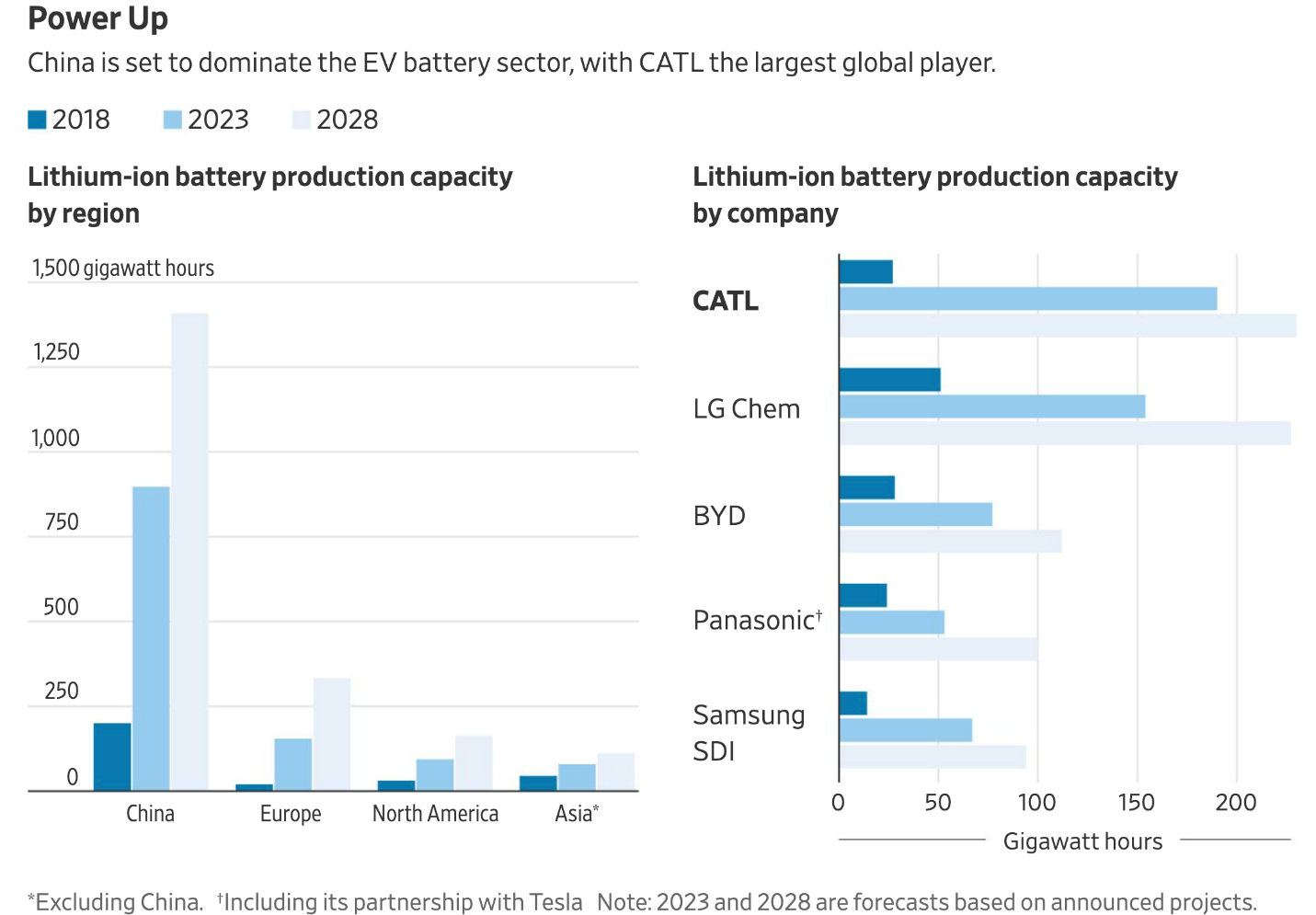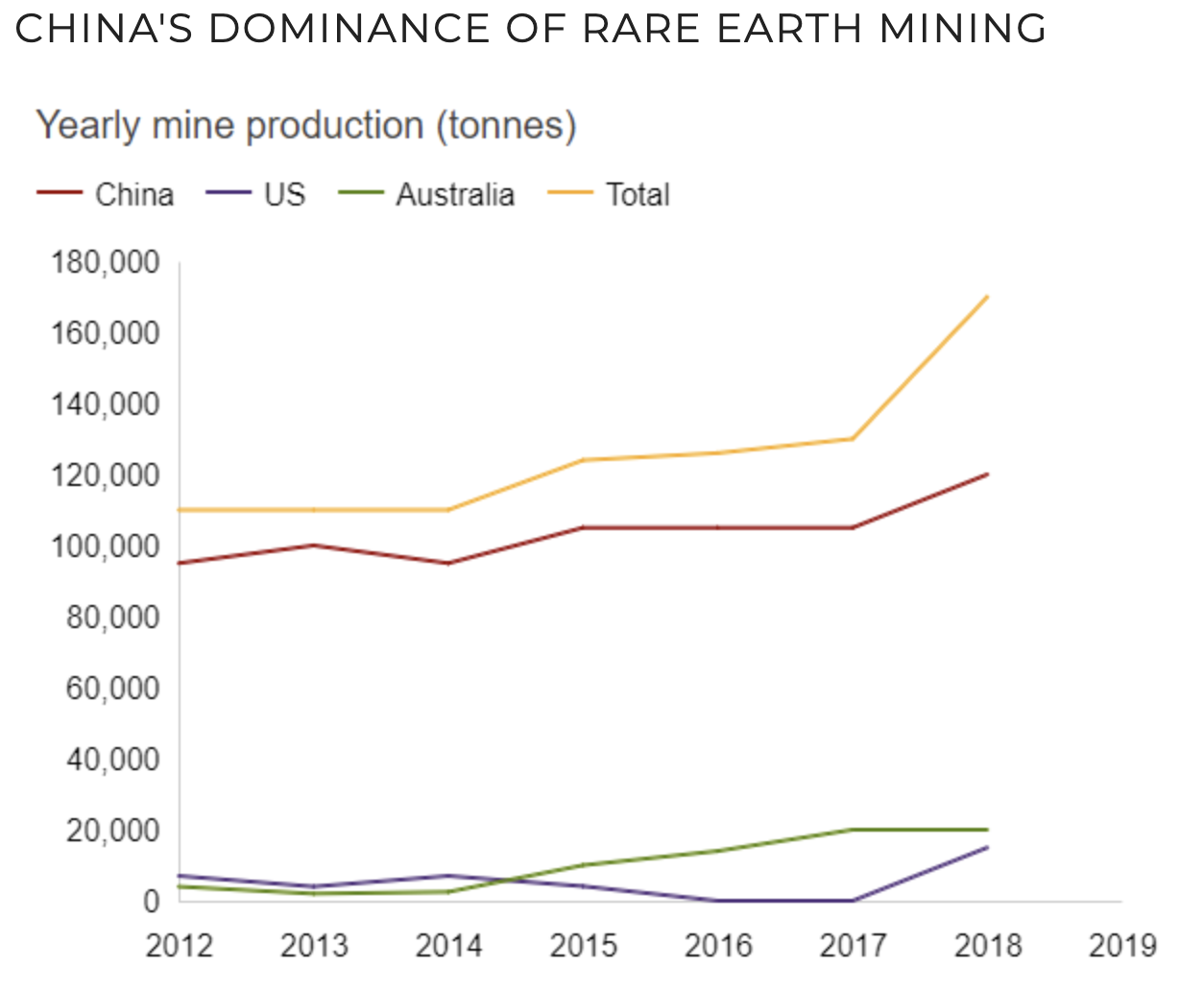Democratic presidential nominee Joe Biden’s climate and energy plans will further the aims of the Chinese government to and harm the U. S. economy and energy system.
Electric Vehicles
Joe Biden’s energy and climate plans will raise the fuel economy mandates for U.S. vehicles in order to promote electric vehicle adoption. China plans to be the world’s leader in manufacturing electric vehicles and batteries. It already makes more than half of the world’s electric vehicle batteries and is a major global supplier of critical elements that are needed to produce those batteries. A single Chinese company is set to dominate the electric vehicle battery market (CATL). Forecasts predict that China will be producing as much as 70 percent of the world’s electric vehicle batteries by 2021.

The Chinese government is highlighting electric vehicles as one of 10 commercial sectors central to its “Made in China” effort to boost advanced industrial technology. Government efforts include spending billions of dollars to subsidize manufacturing of electric vehicles and batteries, and directing businesses and consumers to buy them. Since China controls the supply chains for the minerals and materials necessary to build them, they have reduced the hurdles to their dominance in these areas.
There are currently almost 300 million cars in the United States. If those cars are replaced by electric vehicles, they would each need about a half-ton of batteries. Those batteries need critical materials such as lithium, cobalt, copper, neodymium, and molybdenum and China is currently the global leader in the production and processing of all these materials.
Electric Generation Sector
Biden’s plan to make the U.S. electric generation sector carbon-free by 2035 is essentially a push for more solar and wind farms since new nuclear and carbon capture and sequestration technologies cannot compete economically with federally subsidized and state mandated wind and solar power.
Nearly two-thirds of all solar panel equipment is produced in China. China has been investing in solar power for years, benefiting from its huge manufacturing base and low production costs, which resulted in its becoming the world’s biggest solar power producer. Chinese solar panel manufacturers leveraged that domestic boom and massive government support to dramatically increase their scale. That growth partially coincided with the 2007-8 financial crisis, which left other companies unable to compete, and allowed Chinese companies to capture global market share.
Wind turbines contain rare-earth elements—a group of 17 metals that share certain unique properties including heat resistance and high electrical conductivity. Wind turbine manufacturers Vestas, Siemens Gamesa and General Electric need rare earth elements for permanent-magnet synchronous generators used in wind turbines. Rare earth elements are actually not scarce, but they are very difficult to extract chemically. While rare earth reserves can be found worldwide, China dominates global rare earth production with about 80 to 90 percent market share. They have been developing this capability for decades.
China’s power regarding rare earth elements can be seen from this example. In 2010, China cut the supply of rare-earth elements to Japan over a territorial dispute, violating free trade rules established by the World Trade Organization. The export freeze had repercussions on Japan’s industrial sector and on American companies which rely on Japan for components using rare-earths.

Paris Accord
President Trump has withdrawn the United States from the Paris Accord, which he will formally do on November 4, because the agreement that the Obama-Biden Administration reached with China, the world’s largest greenhouse gas emitter, was unfair to U.S. citizens and companies. While the Obama/Biden Administration committed the United States to cut its greenhouse gas emissions by 26 to 28 percent from 2005 levels by 2025, China is able to keep increasing its greenhouse gas emissions through 2030. To enable its economic recovery from the coronavirus pandemic, China is building 250 gigawatts of coal fired units—more than the entire U.S. coal generating fleet today. That will add to the over 1,000 gigawatts of existing coal power China already has that have an average life of just 14 years. Given that coal units can last 40 to 50 years, China will be emitting greenhouse gas emissions for a long time in the future.
The Paris Climate Agreement also allows China to receive grants from the Green Climate Fund as a “developing country.” The Obama-Biden Administration directed $1 billion in U.S. revenue to the fund before President Trump announced a withdrawal from the Paris Agreement. Democratic presidential candidate Joe Biden wants to reenter the Paris Accord, which will make it difficult for American firms to compete with China by capping U.S. emissions while allowing China’s emissions to grow.
Oil and Natural Gas
Biden’s plan commands the generation sector, which gets 62 percent of its generation from coal and natural gas, to be carbon-free by 2035 and the entire U.S. energy economy to be carbon-free by 2050. Unless Biden can convince foreign countries to commit to similar mandates (think China), Biden will make fossil fuels cheaper for everyone else, creating a massive rebound effect as foreign emitters capture market share for energy-intensive products at the expense of U.S. firms.
Proven fossil-fuel reserves in the United States are expected to be worth about $5 trillion. If Biden is successful, the value of reserves left in the ground would go to zero immediately, destroying $5 trillion in wealth. Announcing that the fuels will be worthless in a few years would create a race to extract them now, while they still have value, increasing carbon dioxide emissions in the short run. It would also devalue U.S. energy companies artificially, as command-and-control policies destroy value for those companies who operate in the United States.
While Biden’s mandates may not be even feasible, the government orders to make the U.S. comply will economically harm American businesses and U.S. families. To accomplish these mandates, Biden will use various tools such as a carbon tax, banning drilling on federal lands and waters, banning fracking, and subsidizing as well as mandating renewable energy.
Conclusion
Biden’s climate and energy plans will benefit China and hurt U.S. families and businesses. China is allowed to grow its carbon dioxide emissions under Paris, while Biden will be cutting them here in the United States. The cost will be enormous to Americans, who are trying to recover from the coronavirus pandemic. Unilateral disarmament for our energy producers and a commitment to purchase energy-related products controlled by China are a recipe for American decline, which is what Biden’s plans are expected to do.
The post Biden’s Energy Plan Abets China appeared first on IER.
No comments:
Post a Comment